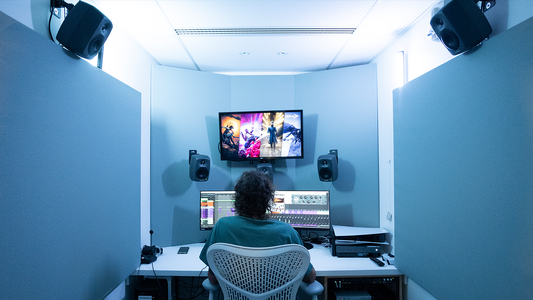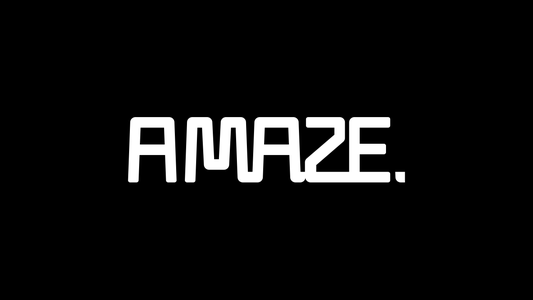Since the death of Bethesda and Valve's "paid mods" system in April 2015, there has been persistent speculation on modding forums that Bethesda intends to re-introduce paid mods at some point in the future.
Fuelling this speculation in April 2016, Todd Howard (Bethesda’s Creative Director) made some comments about the scrapped paid mods system in an interview with Newsweek:
“I think we went right to the ultimate, just totally open and whatever goes, goes. But it's like blasting someone into the vacuum of space without astronaut training…”
He then added:
“If something doesn't go well we'll keep at it.”
These comments suggest that Bethesda may make another attempt at a paid mods system, this time one that isn’t “totally open”. In other words, while Bethesda made the original system "uncurated" (meaning that anybody could sell anything for any price), in the future it may look to make a "curated" system in which Bethesda could place limits on who can sell mods, what can be sold, and/or for how much they could be sold. Let's call this Paid Mods 2.0.
Adding further fuel to speculation about Paid Mods 2.0 is the recent launch of Bethesda's own platform for sharing mods, Bethesda.net. This platform has allowed Bethesda to make modding cross-platform, massively increasing the audience for mods. In fact, Newsweek reported in April 2016 that nearly 20 million Xbox One gamers had downloaded mods from Bethesda.net since its launch. We're told support for mods on PS4 is on its way. While Bethesda may simply have created this platform selflessly to bring the joy of modding to console users, this platform also puts Bethesda in a position where - if it launches Paid Mods 2.0 – it now stands to take a much greater share of revenue than it would have under the original paid mods system, because Valve is no longer involved. All of this means that Bethesda now has a much more compelling business case to launch a paid mods system than it did in 2015.
Bethesda has already hosed down speculation that paid mods will return along with the launch Skyrim Special Edition on 28 October 2016, with Pete Hines (Bethesda's VP of PR and Marketing) tweeting "we won't do paid mods." What that means is: Bethesda doesn't intend to reintroduce paid mods yet.
This begs the question: what is Bethesda waiting for? It may be that Bethesda wants to entice console users into the world of modding - allowing them to see the value of mods - before it reveals Paid Mods 2.0. It may also be that Bethesda is waiting for animosity toward paid mods to die down, although the volume of ongoing speculation and internet chatter suggests this may not happen any time soon.
What is clear is that if Bethesda wants to launch Paid Mods 2.0, and get the timing right, it will need to understand the root causes of opposition to paid mods.
What follows is a critical evaluation of the arguments for and against paid mods. It is not an opinion piece, nor is it a fence-sitting editorial which pretends that all views have equal merit (sometimes called "the bias toward fairness").
The arguments for paid mods
1. Bethesda is entitled to introduce paid mods.
From a rights-based perspective, Bethesda is entitled to sell intellectual property which it and modders agree to sell. On the other hand, the role of mod users, as prospective purchasers, is limited to either buying a mod, or not buying it. They have no automatic right to mods, nor are they entitled to decide whether mods should be available for sale.
2. It’s inherently fair for people to expect payment for their work.
This should be self-explanatory, but here’s an illustration: Imagine your neighbor is an amateur handy-man and has done some alterations to your house for free because he enjoys it. Now imagine one days he says he’s started his own business and is going to start charging a (modest) fee for his services from now on. If you want his services, your options are either (a) pay for his services, if they’re valuable to you, or (b) decline his services. No reasonable person could deny his right to charge for his services. This is because it’s inherently fair for people to expect payment for their work.
3. The current system benefits everyone except modders.
Under the current system:
Bethesda benefits commercially from mods (even when they're free) because its games attract a strong following thanks in part to the mods that are available.
Mod users get to enjoy a massive amount of additional content.
Robin Scott, owner of the Nexus mod hosting site, derives a profit from advertising on his site.
Streamers, who broadcast themselves playing Bethesda games loaded up with mods, often receive advertising revenue and donations/subscriptions.
Modders lose money. This is because making mods tends to take a lot of time, and time has a monetary value. To illustrate the point, modder Jonx0r wrote that making celebrated Skyrim mod Wyrmstooth took him approximately 2,000 hours. He subsequently told me he had decided to quit modding because of the heavy toll his hobby had taken on his career.
4. A paid mods system will result in better mods.
Economics 101 tells us that giving modders a chance to profit from their work would help attract and retain talented modders, and keep them motivated to do their best work. In a competitive marketplace, mod users would collectively reward modders for offering good quality mods, and penalize them for offering bad ones. Over time these market forces would create an abundance of good quality mods, while competition between modders would keep downward pressure on prices.
This system might even also allow some modders to generate enough income that they could work on modding full time, producing content much more efficiently than they could working only in their spare time.
The arguments against paid mods
1. The market will be flooded with bad or overpriced mods.
Economics 101 tells us that in competitive markets, bad or overpriced content generally doesn’t sell.
In the case of bad content (buggy or “not as advertised” mods), consumers would be able to leave negative ratings and reviews, warning others of the problem, and obtain refunds. These features were present in the original paid mods system, and would presumably be present in Paid Mods 2.0. Further, because of these features, modders would have a very strong (financial) incentive to improve the quality of their work, which would result in a general increase in quality across the board.
In the case of overpriced content, very few mod users would buy it. Creators of that content would quickly lower their prices. Realistically, in a paid mods system, the pricing “sweet spot” for each type of mod would eventually be determined by the amount of money most people are comfortable spending. Consumers could collectively exert downward pressure on prices by refusing to pay for content until it came into an acceptable range. In the case of major, high-quality content mods I would expect the sweet spot to be around $5, and for mods that make minor changes to textures or gameplay, I would expect prices to be either a fraction of a dollar, or free.
Further, competitive online marketplaces tend to make it easy to browse for content by category, as well as promoting popular content on special lists (such as Steam’s “Popular new releases” and “Top sellers” list). Such features ensure that popular mods receive extra attention, while bad content disappears into obscurity.
2. Modders will all try to make low effort / high reward mods.
In a competitive market, an oversupply of a particular type of content tends to drive the price down. This means that if, for example, large numbers of individual modders were to create texture mods because production is quick and easy and they fetch a reasonable price, there would be such fierce competition that they would all have to lower their prices in the medium to long term, making this practice unsustainable.
Similarly, an undersupply of a particular type of content would incentivize modders to create that content. For example, if there is gap in the market for quest mods, then enterprising modders would eventually fill that gap.
In other words, market forces would naturally correct any problems with oversupply or undersupply, as over time, modders would respond to the demands of mod users.
3. Mods aren’t worth paying for.
Valve announced that as of January 2015, sales of mods for its games had generated $57 million shared between 1500 modders, so clearly there is a market for paid mods, and a large audience of people willing to pay for mods.
This argument appears to be an attempt to devalue the work of modders in order to ensure access to mods remains free. Since mod users want mods, it follows that mods have some value. In fact, mod users were so determined to retain access to free mods that in April 2015 they ran a protest campaign against the original paid mods system, in which over 130,000 people signed a petition on Change.org. Clearly this is a sign many people value mods very highly.
4. A better system would be a donations system.
This is one of the more curious arguments made against a paid mods system, for two reasons:
First, this argument is usually presented as though a donations system would be a compromise between the current system, and a paid mods system. In fact, there is already a donations system in place on the Nexus and it has been in place since before the paid mods system was introduced. The fact that many opponents of paid mods seem to be oblivious to the existing donation system suggests very strongly they have never made a donation.
Second, no matter how good a mod is, the number of people who donate will be negligible. I made a mod which drew critical acclaim, being described by Skyrim Mods Weekly as one of the two best Skyrim mods of all time, and yet fewer than 0.02% of players donated. In other words, continuing with the current “donation system” simply means that, in practice, over 99.98% of people will access the content for free.
5. Modders who want to sell their mods are just greedy.
In the “modding community” there are two groups of people:



































